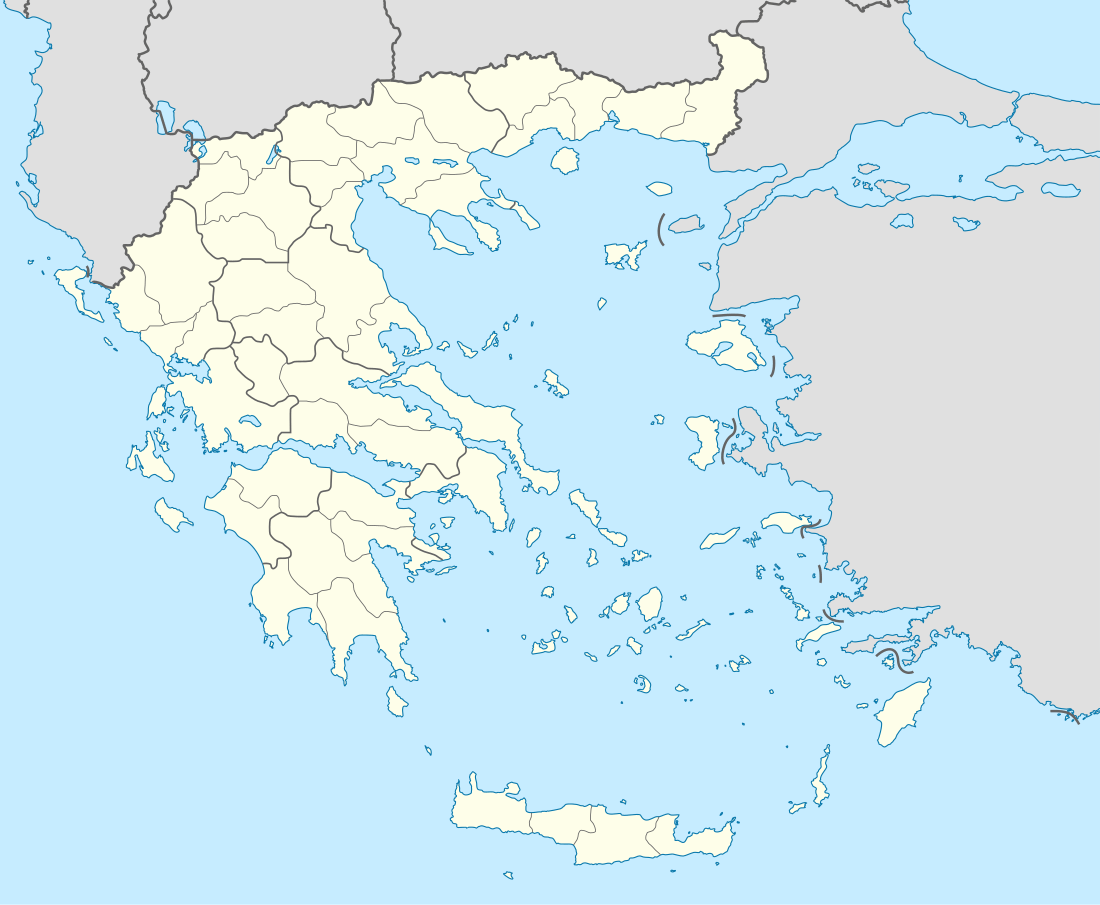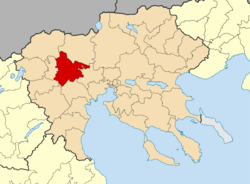Pella (municipality)
Pella (Greek: Πέλλα) is a village and a municipality in the Pella regional unit of Macedonia, Greece. It is located on the site of ancient Pella, the capital of the Kingdom of Macedonia and birthplace of Alexander The Great. The capital of the municipality is Giannitsa, the largest town of the regional unit.[2] On the site of the ancient city of Pella is the Archaeological Museum of Pella.
Pella Πέλλα | |
|---|---|
Town sign | |
 Pella Location within the region  | |
| Coordinates: 40°48′N 22°31′E | |
| Country | Greece |
| Administrative region | Central Macedonia |
| Regional unit | Pella |
| Government | |
| • Mayor | Grigoris Stamkos |
| Area | |
| • Municipality | 669.2 km2 (258.4 sq mi) |
| • Municipal unit | 113.8 km2 (43.9 sq mi) |
| Elevation | 36 m (118 ft) |
| Population (2011)[1] | |
| • Municipality | 63,122 |
| • Municipality density | 94/km2 (240/sq mi) |
| • Municipal unit | 6,798 |
| • Municipal unit density | 60/km2 (150/sq mi) |
| Community | |
| • Population | 2,398 (2011) |
| Time zone | UTC+2 (EET) |
| • Summer (DST) | UTC+3 (EEST) |
| Postal code | 580 05 |
| Area code(s) | 23820 |
| Vehicle registration | ΕΕ |
| Website | www |
Name
During the Byzantine and Ottoman periods, the town was known in Greek as Άγιοι Απόστολοι (Agii Apostoli) 'Holy Apostles' and in Ottoman Turkish as Allah Kilise 'God's Church'.[3] In the local Slavic language, the name is Postol (Постол). The name Pella was revived in 1926.[4]
History
.jpg)
_in_Pella_city_(6914694770).jpg)
Ancient Pella was a vast city. However, the city was ravaged by the Romans during the 1st Century BC and lost its significance. By the 19th century, Agii Apostoli occupied a site near the upper city, and the lower city extended down to the wetlands of Mavroneri.[3]
Félix de Beaujour, a French consul of Thessaloniki at the end of the 18th century, wrote in his travels for the Ottoman Empire: "Pella rises amphitheatrically on the slope of a hill on the top of which was the fortress, at the present is a little village of Alla Klise, populated with Bulgarian Christians."[5]
The village joined the Bulgarian exarchate and a survey by Vasil Kanchov in 1900 revealed that the population of Pella was 520 Bulgarian exarchists.[6] Another survey in 1905 recorded that in the village there were 720 Bulgarian exarchists.[7]
Municipality
The municipality Pella was formed at the 2011 local government reform by the merger of the following 5 former municipalities, that became municipal units:[2]
The municipality has an area of 669.220 km2, the municipal unit 113.819 km2.[8] The municipality has a population of 63,122 (2011 census). The capital of the municipality of Pella is Giannitsa (population 29,789 at the 2011 census). Other towns are Krya Vrysi (pop. 6,535), Mylotopos (pop. 2,605), Pella (pop. 2,450), Galatades (pop. 2,339), Karyotissa (pop. 1,999), Aravissos (pop. 1,800), Ampeleíai (pop. 1,095), Melíssion (983), Pentaplátanon (956), and Paralímni (816).
Famous people
- Alexander the Great (356–323BC) King of Macedon at its height
- Philip II of Macedon Father of Alexander the great and king of Macedon from 359 BC until his assassination in 336 BC.
- Krste Misirkov (1874–1926), a philologist and publicist.
See also
References
- "Απογραφή Πληθυσμού - Κατοικιών 2011. ΜΟΝΙΜΟΣ Πληθυσμός" (in Greek). Hellenic Statistical Authority.
- Kallikratis law Greece Ministry of Interior (in Greek)
- Grande Encyclopedie, s.v. Pella
- "Agioi Apostoloi -- Pella". Pandektis: Name Changes of Settlements in Greece, compiled by the Institute for Neohellenic Research
- Beaujour, Félix de. Voyage militaire dans l'empire Othman, Paris 1820, p. 197.
- Васил Кънчов. „Македония. Етнография и статистика“. София, 1900, стр.147
- D.M.Brancoff. "La Macédoine et sa Population Chrétienne". Paris, 1905, р.102-103.
- "Population & housing census 2001 (incl. area and average elevation)" (PDF) (in Greek). National Statistical Service of Greece.

